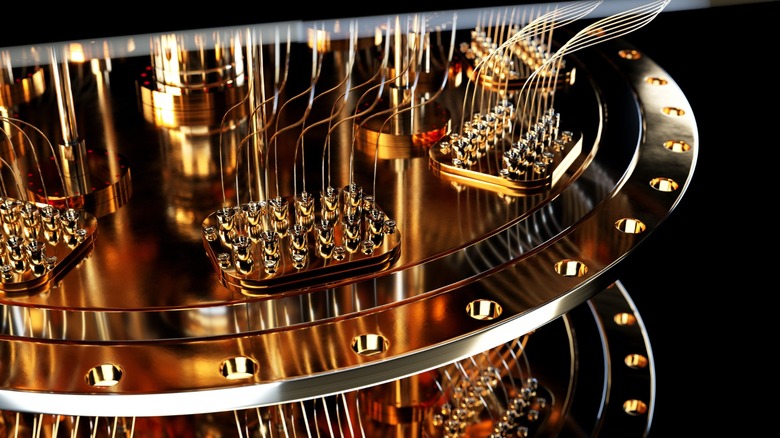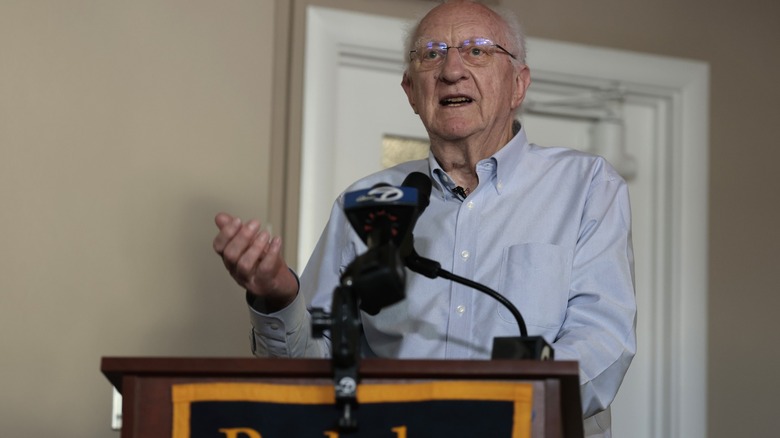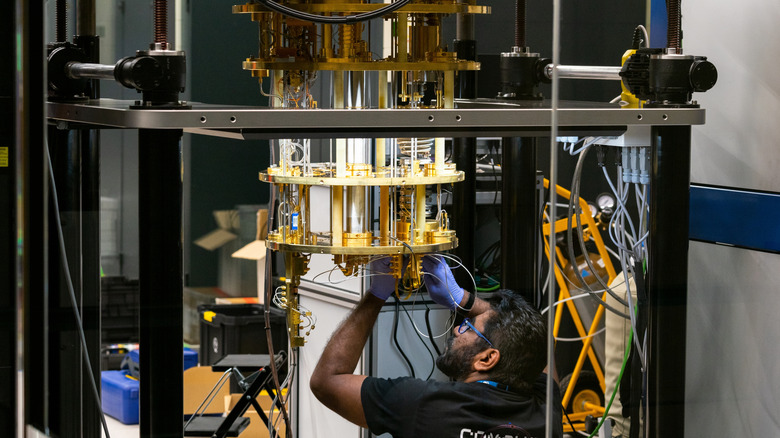Quantum Mechanics Visionaries Take Home 2025's Physics Nobel Prize
For many of us, advanced physics can be tough to understand to begin with, which makes it all the more impressive whenever someone earns a Nobel Prize for advancing the field even further. The latest winners of the Nobel Prize for Physics are three scientists — John Clarke, Michel H. Devoret, and John M. Martinis — who took home the prize for groundbreaking experiments in quantum mechanics.
Quantum physics is a sub-branch of the field that specifically focuses on subatomic particles and forces. At this incredibly microscopic level, basic rules of physics that govern our everyday experiences behave much differently — so differently, in fact, that much of quantum physics is still theoretical and barely understood by the smartest scientists working today. Even Albert Einstein infamously struggled with the ideas behind quantum mechanics, which include superposition, determinism, and entanglement, going as far as to call it downright "spooky action at a distance." One commonly-used way to describe basic quantum mechanics is the double-slit experiment, which shows that light exists as both a wave and a particle at the same time.
Such quantum phenomena make it inherently difficult to observe results in experiments, especially since a core component of the field is that the very act of observing is a form of interaction that affects what is being experimented on. Along with the fact that the particles being studied in quantum mechanics are so incredibly small, performing experiments and attempting to prove or disprove theories is extremely difficult. What has earned Clarke, Devoret, and Martinis one of the most prestigious awards in modern society are the trio's experiments that made it possible to prove certain quantum principles in ways observable by the naked eye. This opened the door to all kinds of advancements in the field.
The scientists are winning the award for experiments conducted over 40 years ago
As is the case with many Nobel Prize winners, the discoveries that have earned Clarke, Devoret, and Martinis their accolades were actually made decades earlier. The experiments, conducted in 1984 and 1985, involved observing a superconducting circuit within a computer chip — which is obviously pretty small, but positively gigantic (or "macroscopic") compared to the individual particles typically studied in quantum mechanics.
Two quantum phenomena were proven through these experiments — energy level quantization and quantum tunneling. Quantum tunneling is when a particle can pass through a barrier despite not having enough energy to do so, while quantization of energy is the property of subatomic particles that restrict them to emitting and absorbing energy only in fixed amounts. Since these discoveries were made over 40 years ago, there has been plenty of time to see their real-world effects and just how much of an impact the work of Clarke, Devoret, and Martinis has had on our lives.
Because this impact has been so significant over the last few decades, it's easy to make the case for awarding the trio the Nobel Prize for Physics. According to Olle Eriksson, chairman of the Nobel Committee for Physics, "There is no advanced technology today that does not rely on quantum mechanics" and that the experiments of Clarke, Devoret, and Martinis led to the development of fiber optic cables, mobile phones, and other everyday technology. Their work is also leading the way toward even more advanced electronics that can further revolutionize the modern world — namely, quantum computers, like the one that just went only in NYC.
What are quantum computers?
Quantum computing can be tricky to understand, just like the rest of quantum mechanics. A very simplified version is to think of quantum computers using quantum mechanics to think faster and more comprehensively than traditional computers, which use a binary system. Binary refers to the fact that traditional computers use transistors that can exist in either one of two states — on or off, or one and zero. Quantum computers, on the other hand, replace binary bits with quantum particles called qubits, which — thanks to quantum mechanics — can exist in all possible configurations at once.
In effect, rather than information being represented as a 1 or a 0, it can be represented as both at the same time, as well as other states. When computing data, this superposition of states can be narrowed down by canceling some through quantum interference while amplifying others, with the latter being the solutions to a quantum circuit's computations. Connecting multiple quantum computers around the world can even lead to a quantum internet that is faster, more accurate, and more secure than today's internet.
This field of computer science and engineering has been rapidly progressing over the past few years, with the promise of real-world applications growing tantalizingly closer. If quantum computing lives up to its hype, it could potentially create a brave new world of advanced technology and discoveries unlike anything before — similar to the impact electricity and modern communication has had on the world over the past 150 years. The work of John Clarke, Michel H. Devoret, and John M. Martinis is a huge step toward this reality, which is why — despite quantum physics being tough to wrap our heads around — the trio winning a Nobel Prize is a no-brainer.


